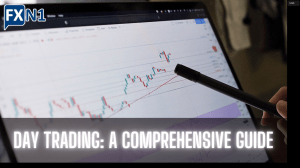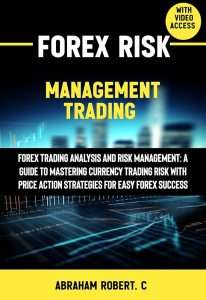Choosing the Right Forex Broker: A Comprehensive Guide
Unlock Forex trading success! Our guide helps you choose the right broker, avoiding slow execution, unreliable platforms, and potential fund loss. Navigate the Forex market with confidence.
The foreign exchange market, or Forex, is a vast and dynamic arena where currencies are traded globally. It operates 24/5, offering opportunities for significant profit but also carrying substantial risk. Choosing the right Forex broker is paramount to success in this market. A poorly chosen broker can lead to frustrating experiences, including slow execution speeds, unreliable platforms, and even the loss of funds. This comprehensive guide will help you navigate the complexities of selecting a suitable Forex broker.
Understanding the Forex Market
Before delving into the specifics of choosing a broker, it’s crucial to understand the Forex market itself. It’s a decentralized, over-the-counter (OTC) market, meaning there’s no central exchange. Trading takes place electronically between two parties, typically a broker and a trader. The market’s size and liquidity make it attractive to both individual investors and large financial institutions; Understanding the market’s mechanics and inherent risks is essential before engaging in Forex trading.
Major Currency Pairs and Trading Strategies
Forex trading involves speculating on the value of one currency against another. Major currency pairs, such as EUR/USD (Euro/US Dollar) and USD/JPY (US Dollar/Japanese Yen), are the most heavily traded due to their high liquidity and volatility. Different trading strategies exist, from scalping (short-term trades) to swing trading (holding positions for several days or weeks). Choosing a broker that supports your preferred strategy is vital.
Understanding the nuances of technical and fundamental analysis is also crucial. Technical analysis involves studying price charts and patterns to predict future price movements. Fundamental analysis considers economic indicators and news events to assess the value of a currency. A good broker will provide resources to help you develop your analytical skills.
Key Factors to Consider When Choosing a Forex Broker
Selecting the right Forex broker requires careful consideration of several critical factors. These factors can significantly impact your trading experience and overall success. Ignoring these considerations could lead to significant financial losses or considerable frustration.
Regulation and Licensing
A reputable Forex broker will be regulated by a recognized financial authority. Regulation ensures compliance with certain standards and provides a level of investor protection. Check the broker’s regulatory status on the relevant authority’s website. Trading with an unregulated broker carries a significantly higher risk.
Trading Platform and Technology
The trading platform is your primary interface with the market. A user-friendly, reliable platform is essential for efficient trading. Consider factors like speed of execution, charting tools, order types available, and mobile accessibility. Many brokers offer demos, allowing you to test the platform before committing funds.
Spreads and Commissions
Spreads are the difference between the bid and ask prices of a currency pair. Commissions are additional fees charged by the broker. Both contribute to your trading costs. Compare spreads and commissions across different brokers to find the most cost-effective option. Lower spreads and commissions can significantly impact profitability.
Account Types and Minimum Deposits
Brokers typically offer various account types, each catering to different trading styles and capital levels. Consider your trading experience and capital before choosing an account type. Understand the minimum deposit requirements and any associated fees.
Customer Support and Education
Reliable customer support is crucial, especially when dealing with technical issues or trading questions. Choose a broker with responsive and knowledgeable customer support representatives. Access to educational resources, such as webinars and tutorials, can significantly enhance your trading skills. A broker who prioritizes education demonstrates a commitment to client success.
Security and Safety of Funds
The safety of your funds should be a top priority. Ensure the broker employs robust security measures to protect your account and personal information. Research the broker’s security protocols and check if they segregate client funds from their operating capital. This separation protects your funds in case of broker insolvency.
Types of Forex Brokers
Different types of Forex brokers cater to various trader needs and preferences. Understanding these distinctions is crucial for making an informed decision.
- Market Makers: These brokers act as counterparties to your trades, creating a direct relationship. They profit from spreads and typically offer tight spreads but may have conflicts of interest.
- ECNs (Electronic Communication Networks): ECN brokers route your orders to a larger network of liquidity providers, often resulting in tighter spreads and better execution. They may charge commissions in addition to spreads.
- STP (Straight Through Processing) Brokers: STP brokers aim to pass your orders directly to liquidity providers, minimizing manual intervention and potential conflicts of interest. They usually charge commissions or higher spreads.
- Dealing Desk Brokers: These brokers manage orders internally, potentially leading to potential conflicts of interest. They often have less transparency than ECN or STP brokers.
Leverage and Risk Management
Leverage allows you to control a larger position with a smaller amount of capital. While it can amplify profits, it also significantly magnifies losses. Understand the risks associated with leverage and manage your positions accordingly. Never trade with more capital than you can afford to lose.
Effective Risk Management Strategies
Implementing effective risk management strategies is essential for long-term success in Forex trading. This includes setting stop-loss orders to limit potential losses, diversifying your portfolio across different currency pairs, and avoiding over-trading. Consistent risk management practices are crucial for protecting your capital.
Regularly review your trading performance and adjust your strategies as needed. Successful Forex traders adapt to market conditions and continuously refine their approach. Continuous learning and adaptation are vital to long-term success.
Choosing the Right Forex Broker: A Step-by-Step Approach
To make an informed decision, follow a systematic approach when choosing a Forex broker. This structured process will help you avoid pitfalls and select a broker that aligns with your trading style and risk tolerance.
- Define your trading goals and style: Are you a scalper, swing trader, or long-term investor? Understanding your trading preferences will guide your broker selection.
- Research and compare different brokers: Use online resources, reviews, and comparison websites to evaluate various brokers.
- Check regulatory status and security measures: Ensure the broker is regulated and employs robust security protocols.
- Evaluate trading platforms and tools: Test the platform’s functionality and user-friendliness.
- Compare spreads, commissions, and account types: Find a broker that offers competitive pricing and suitable account options.
- Assess customer support and educational resources: Ensure the broker provides reliable support and valuable educational materials.
- Consider demo accounts: Practice trading on a demo account before risking real capital.
- Read reviews and testimonials: Gather insights from other traders’ experiences.
- Start with a small account: Begin with a small amount of capital to minimize potential losses during the learning process.
Frequently Asked Questions (FAQs)
Many questions arise when navigating the world of Forex brokers. Here are some frequently asked questions to help clarify common concerns.
What is the best Forex broker?
There is no single “best” Forex broker. The ideal broker depends on individual needs and preferences, such as trading style, capital, and risk tolerance.
Are Forex brokers safe?
Reputable, regulated Forex brokers are generally safe. However, it’s crucial to research a broker’s regulatory status and security measures before trading.
How do I choose a regulated Forex broker?
Check the broker’s website for regulatory information and verify its license with the relevant financial authority.
What are the risks of Forex trading?
Forex trading involves significant risk, including the potential for substantial financial losses. Proper risk management is crucial.
How can I learn more about Forex trading?
Many online resources, including educational websites, books, and courses, offer comprehensive information on Forex trading.
Choosing the right Forex broker is a critical step in your Forex trading journey. By carefully considering the factors outlined in this guide and conducting thorough research, you can increase your chances of finding a reliable and suitable partner for your trading endeavors; Remember to prioritize security, regulation, and a platform that matches your trading style. Consistent learning and disciplined risk management are equally vital for long-term success in this dynamic market. Thorough due diligence and a cautious approach will significantly improve your overall trading experience and increase the likelihood of positive outcomes. Never invest more than you can afford to lose, and always approach Forex trading with a realistic understanding of the risks involved. With careful planning and a commitment to continuous learning, you can navigate the complexities of the Forex market and potentially achieve your financial goals.







